Daniel Schmid
Birth : 1941-12-26, Flims-Waldhaus, Graubünden, Switzerland
Death : 2006-08-05
History
From Wikipedia
Daniel Schmid (26 December 1941 – 5 August 2006) was a Swiss theatre and film director.
In 1982, his film Hécate was entered into the 33rd Berlin International Film Festival. His film Beresina, or the Last Days of Switzerland was screened in the Un Certain Regard section at the 1999 Cannes Film Festival. In 1988, he was a member of the jury at the 38th Berlin International Film Festival.
A new documentary film on Schmid's life Daniel Schmid - Le chat qui pense, had its U.S. premiere at the Frameline Film Festival in San Francisco on June 20, 2011.

Associate Producer
In order to sustain his family, a troubled pilot accepts one last crooked deal to transport a dangerous cargo inside his spaceship.
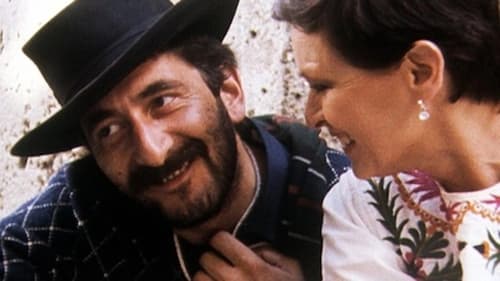
Self (archive footage)
When director Daniel Schmid grew up, his parents ran a hotel in the Alps, and this singular setting was to influence his film. Rather by coincidence he came to Berlin in the early 1960s and became part of the new German wave. Schmid worked with, among others, Wenders and Fassbinder, for example as an actor in Wender’s The American Friend. He met Ingrid Caven, who was to play a diva in several of his films. This is a documentation of a part of modern European film history and a good analysis of artistry and how it corresponds to the individual behind the camera. A wealth of archival footage brings us close to many directors and actors in Schmid’s circle. If you’ve never seen a Daniel Schmid film, you are sure to want to after watching this portrait of his life.

Director
Live performance from the Zurich Opera House, January 2002.

Director
A naive girl's love for Switzerland is put to the test in this satiric comedy. Irina is a woman from Russia who all her life has always been fascinated by Switzerland and longs to live there some day, though her notion of Swiss life has more to do with Heidi and old movies set in the Alps than reality.

Director
Acclaimed soprano Edita Gruberova stars as the title character in this 1996 production of Gaetano Donizetti's "Linda di Chamounix," featuring the Orchestra and Chorus of the Zurich Opera House under the direction of conductor Adam Fischer. Secretly in love with Viscount Carlo, Linda goes mad when she learns a marriage to another woman has been arranged for him. Jacob Will and László Polgár also star.

Writer
In Japanese theater women's roles are traditionally played by men. The man playing the woman's role, the Onnagata, does not imitate the woman, as in the West, but tries to capture her significance. He need not stick close to his model, but draws far more from his own identity - a shift of value takes place, which is nonetheless not a step beyond. THE WRITTEN FACE is an attempt to offer an insight into the Japanese Kabuki star Tamasaburo Bando, one of the last defenders of this ancient and disappearing performing tradition.

Director
In Japanese theater women's roles are traditionally played by men. The man playing the woman's role, the Onnagata, does not imitate the woman, as in the West, but tries to capture her significance. He need not stick close to his model, but draws far more from his own identity - a shift of value takes place, which is nonetheless not a step beyond. THE WRITTEN FACE is an attempt to offer an insight into the Japanese Kabuki star Tamasaburo Bando, one of the last defenders of this ancient and disappearing performing tradition.

Director
Kazuo Ohno, Father of the Butoh Dance, first appeared on stage at the age of 43. He left the stage only at the age of one hundred, three years before he died. This short dialogue less film presents the exceptional range of expressions that this Japanese dancer could achieve, both with makeup and costumes and without.

Writer
The formerly great Swiss hotel which Valentin's family owned when he was a boy has been emptied and is about to be torn down. He revisits the magical site's empty halls and ballrooms.

Director
The formerly great Swiss hotel which Valentin's family owned when he was a boy has been emptied and is about to be torn down. He revisits the magical site's empty halls and ballrooms.
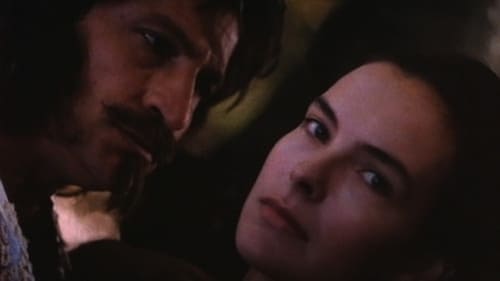
Writer
A journalist is assigned to interview an eccentric anthropologist who has exhumed the skeleton of Jörg Jenatsch, a revered freedom fighter who was mysteriously murdered in 1639. Initially disinterested, the journalist begins to uncover unflattering truths about the national hero and experiences visions in which he seems to be witnessing events that transpired over 300 years ago. As he obsessively pursues the investigation, his personal life and his grip on reality disintegrate, drawing him relentlessly toward the fatal carnival at which Jenatsch was killed.

Director
A journalist is assigned to interview an eccentric anthropologist who has exhumed the skeleton of Jörg Jenatsch, a revered freedom fighter who was mysteriously murdered in 1639. Initially disinterested, the journalist begins to uncover unflattering truths about the national hero and experiences visions in which he seems to be witnessing events that transpired over 300 years ago. As he obsessively pursues the investigation, his personal life and his grip on reality disintegrate, drawing him relentlessly toward the fatal carnival at which Jenatsch was killed.

Self
The work of legendary actor François Simon, son of Michel Simon.

Writer
Memoirs of the Italian Opera by the singers and musicians of the Casa Verdi, Milan, the world’s first nursing home for retired opera singers, founded by composer Giuseppe Verdi in 1896. This documentary, which has achieved cult-like status among opera and music lovers, features former singers who reminisce about their careers and their past operatic roles.

Director
Memoirs of the Italian Opera by the singers and musicians of the Casa Verdi, Milan, the world’s first nursing home for retired opera singers, founded by composer Giuseppe Verdi in 1896. This documentary, which has achieved cult-like status among opera and music lovers, features former singers who reminisce about their careers and their past operatic roles.

Writer
A woman goes to Cannes and, lost in its chaos and unable to obtain tickets, ends up watching it on television from her hotel room.

Director
A woman goes to Cannes and, lost in its chaos and unable to obtain tickets, ends up watching it on television from her hotel room.

Producer
Portrait of filmmaker Douglas Sirk.

Writer
Portrait of filmmaker Douglas Sirk.

Director
Portrait of filmmaker Douglas Sirk.
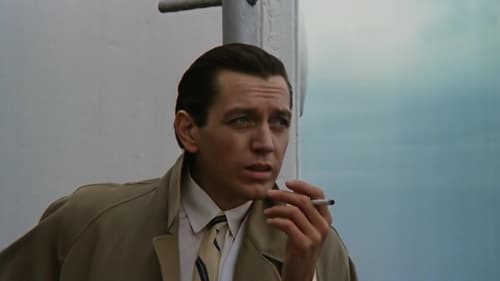
Writer
Set amid the European community in an unspecified North African country, a colony on the verge of nationalism just before the war. And colonized is what happens to a French diplomat, Julien Rochelle, when he meets the mysterious beauty Clothilde de Watteville. Schmid 's favorite axiom, that love is projection, never had such a thorough airing. Is Clothilde really the wife of a French official now holed up in Siberia? Or is she Hecate, goddess of black magic and devourer of the Arab boys she meets far from the European quarter? Only our projections know for sure; for the rest, she is a "woman looking out into the night." Drawn from a novel by Paul Morand, who based the main character on his wife Helene, Schmid's film achieves an atmosphere of magic in which psychological credibility is not so much absent as irrelevant-a film that distances itself from the drama it invokes, perhaps as the elusive Clothilde turns her back on the madness she provokes.

Director
Set amid the European community in an unspecified North African country, a colony on the verge of nationalism just before the war. And colonized is what happens to a French diplomat, Julien Rochelle, when he meets the mysterious beauty Clothilde de Watteville. Schmid 's favorite axiom, that love is projection, never had such a thorough airing. Is Clothilde really the wife of a French official now holed up in Siberia? Or is she Hecate, goddess of black magic and devourer of the Arab boys she meets far from the European quarter? Only our projections know for sure; for the rest, she is a "woman looking out into the night." Drawn from a novel by Paul Morand, who based the main character on his wife Helene, Schmid's film achieves an atmosphere of magic in which psychological credibility is not so much absent as irrelevant-a film that distances itself from the drama it invokes, perhaps as the elusive Clothilde turns her back on the madness she provokes.

Pförtner
The story of a German singer named Willie who while working in Switzerland falls in love with a Jewish composer named Robert whose family is helping people to flee from the Nazis. Robert’s family is skeptical of Willie, thinking she could be a Nazi as she becomes famous for singing the song “Lili Marleen”.

Salomon
Roberte, 40, resistant during the war, Calvinist and anticlerical, is deputy to the chamber and inspector of Censorship. She married Octave, an old Catholic aesthete, professor of canon law, whom she saves from impeachment for collaboration during the war. He submits his wife to a perverse custom: the laws of hospitality or prostitution of the wife by the husband.

Writer
Voted for in the 2012 Sight & Sound poll

Director
Voted for in the 2012 Sight & Sound poll
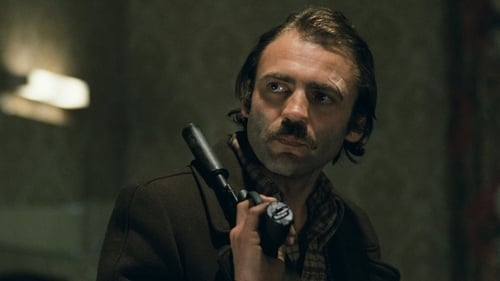
Igraham
Tom Ripley, an American who deals in forged art, is slighted at an auction in Hamburg by picture framer Jonathan Zimmerman. When Ripley is asked by gangster Raoul Minot to kill a rival, he suggests Zimmerman, and the two, exploiting Zimmerman's terminal illness, coerce him into being a hitman.
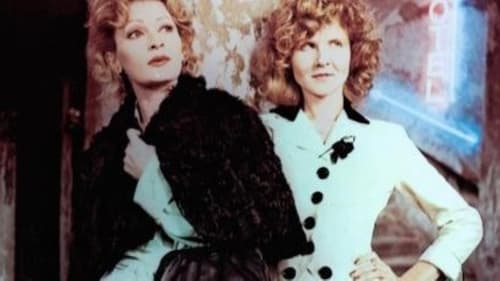
Screenplay
Beautiful, detached, laconic, consumptive Lily Brest is a streetwalker with few clients. She loves her idle boyfriend Raoul who gambles away what little she earns. The town's power broker, called the rich Jew, discovers she is a good listener, so she's soon busy. Raoul imagines grotesque sex scenes between Lily and the Jew; he leaves her for a man. Her parents, a bitter Fascist who is a cabaret singer in drag and her wheelchair-bound mother, offer no refuge. Even though all have a philosophical bent, the other whores reject Lily because she tolerates everyone, including men. She tires of her lonely life and looks for a way out. Even that act serves the local corrupt powers.

Director
Beautiful, detached, laconic, consumptive Lily Brest is a streetwalker with few clients. She loves her idle boyfriend Raoul who gambles away what little she earns. The town's power broker, called the rich Jew, discovers she is a good listener, so she's soon busy. Raoul imagines grotesque sex scenes between Lily and the Jew; he leaves her for a man. Her parents, a bitter Fascist who is a cabaret singer in drag and her wheelchair-bound mother, offer no refuge. Even though all have a philosophical bent, the other whores reject Lily because she tolerates everyone, including men. She tires of her lonely life and looks for a way out. Even that act serves the local corrupt powers.

Writer
Nightclub singer La Paloma succumbs to the persistent courting of a chubby rich admirer and marries him. Before the marriage, she was thought to be dying, but soon she is well. She believes her husband's love has cured her, but her efforts to love him begin to fade as she discovers true love with her husband's old school friend.

Director
Nightclub singer La Paloma succumbs to the persistent courting of a chubby rich admirer and marries him. Before the marriage, she was thought to be dying, but soon she is well. She believes her husband's love has cured her, but her efforts to love him begin to fade as she discovers true love with her husband's old school friend.

Writer
Satire on 19th-century class relations and thinly veiled commentary on the failure of the 1968 political revolution.

Director
Satire on 19th-century class relations and thinly veiled commentary on the failure of the 1968 political revolution.

Aussenminister von der Pfordten
Reflected in an artificial and bombastically staged illusory world with Wagnerian compositions, glossy and satirical time references, 19th century German figures and traditions are stripped of their mythology and interpreted by the Germany of 1972.

Writer
A wacky coup d'etat masterminded by a Russian call girl, in of all places, staid Switzerland, is the subject of Daniel Schmid's black humorous satire on power and its misuses.

Director
A wacky coup d'etat masterminded by a Russian call girl, in of all places, staid Switzerland, is the subject of Daniel Schmid's black humorous satire on power and its misuses.

Writer
Early short by Daniel Schmid.

Director
Early short by Daniel Schmid.

Self
Scenes from Berlin: Kids playing football, a man tries to light a fire in his stove, a film team sets up a shot in a park, students discuss politics.










